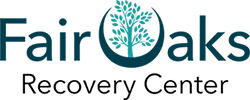There are numerous risk factors for addiction—it’s never just one thing that automatically results in substance use disorder (SUD) or alcohol use disorder (AUD). While many people benefit from protective factors early in life that help prevent the chance of high-risk substance use, research indicates others have adverse childhood experiences that contribute to addictive behavior.
Understanding Adverse Childhood Experiences
While we often refer to a biological family unit, it’s more accurate to call it family of origin—the collective in which you were raised. While we all understand how the people who make up your family of origin influence how you grow up, it goes much deeper than that: your early experiences may also define who you are as an adult, according to Better Help. “The complex effects of how you were raised can affect your present and future. That’s why it may be valuable to consider your family dynamics and family history when working through any mental health concerns.”
The Centers for Disease Control and Prevention (CDC) outline some of the protective factors that support youth and prevent substance use, which we provide verbatim:
- Parent or family engagement
- Family support
- Parental disapproval of substance use
- Parental monitoring
- School connectedness
However, what if a child’s early life is more complex and without these buffers? Without a doubt, millions of children have suffered traumatic incidents within their family of origin, in their communities, and in the world at large. They’ve also experienced the ramifications of generational trauma.
But until 1997, the scientific community wasn’t certain just how trauma weathered at a young age incited addictive behavior. So physician-researchers Vincent Felitti and Robert Anda partnered with the CDC and Kaiser Permanente to understand the trauma children encounter between birth and age 17. The extensive study revealed that risk factors such as abuse, family of origin challenges, and neglect acted as a foundation for addiction, mood disorders, and other health challenges later in life.
Here are the 7 primary adverse childhood experiences, now known as ACEs:
- Physical, sexual, or verbal abuse
- Emotional or physical neglect
- Witnessing domestic violence and other forms of abuse
- Parental or family of origin mental illness
- Parental or family of origin addiction to alcohol or drugs
- Caregiver separation or divorce
- A family member who’s in the justice system
More recent data also includes the harm of additional ACEs including, but not limited to:
- Bullying
- Homelessness
- Food insecurity
- Being in the foster care system
- Deaths within the family of origin
- Ongoing community violence
- Terrorism
Addiction scientists and mental health professionals often use an ACEs quiz and its subsequent score to understand an individual’s background, protective factors, and risk factors in their early life. SUD and AUD may also be incited by other genetic, environmental, and individual elements.
How ACEs Cause Negative Health Issues
The CDC notes that, if not addressed with proper mental health and trauma care, the long-lasting negative impact of ACEs is quite profound. They affect overall well-being, opportunities in both childhood and adulthood—such as education and employment—and particularly emotional, mental, and physical health including, but not limited to:
- AUD and SUD
- Increased risk of injury
- Maternal and child health problems (including teen pregnancy, pregnancy complications, and fetal death)
- Attachment and social structure difficulties
- Sexually-transmitted infections
- Involvement in sex trafficking
- Intimate partner violence
- A series of chronic diseases, such as autoimmune disorders, cancer, diabetes, heart disease, mood disorders, and obesity
- Ongoing toxic stress
- Post-traumatic stress disorder
- Suicide attempts/death by suicide
The CDC also indicates that “those in treatment for SUDs had a higher prevalence of ACEs than those in the general population, and found an association between ACEs and the development of SUDs.”
Anyone can suffer from ACEs—nearly 65 percent of adults in the U.S. reported at least one ACE before age 18, while more than 17 percent had four or more. Unfortunately, the CDC notes that “while all children are at risk of ACEs, numerous studies have shown inequities in such experiences linked to the historical, social, and economic environments in which some families live. ACEs were highest among females, non-Hispanic American Indian or Alaska Native adults, and adults who are unemployed or unable to work.”
Healing From Adverse Childhood Experiences
Fortunately, there are both clinical and lifestyle methods to heal from the effects of ACEs. ACEs Too High suggests taking the ACEs quiz mentioned above and printing off the result to start a conversation with your health care practitioner. In turn, they should be able to provide you with additional resources for emotional and mental care while addressing some of your other medical issues.
Lifestyle approaches you can try include:
- Yoga
- Mindful meditation
- Journaling
- Alternative therapies such as eye movement desensitization and reprocessing (EMDR), biofeedback, electroencephalographic (EEG) neurofeedback, and brainspotting
Find Whole-Person Care at Fair Oaks
It’s essential to discover and acknowledge past trauma, but it doesn’t need to define you. Use what happened in the past to inform how you want to change your future for the better. Fair Oaks Recovery Center in Sacramento provides addiction rehabilitation and dual-diagnosis behavioral solutions through a whole-person care methodology that helps you heal mind, body, and soul. Chart a new course today—start by calling us to learn how we can help.



